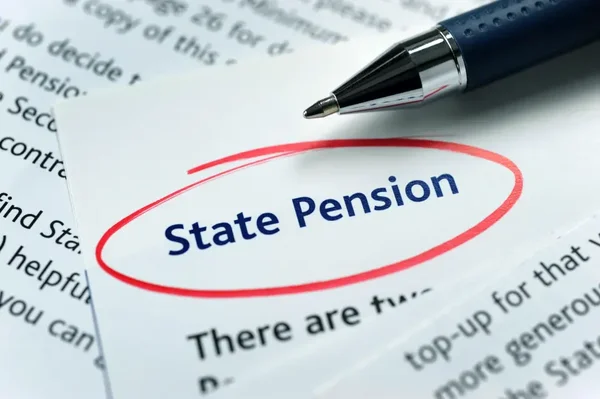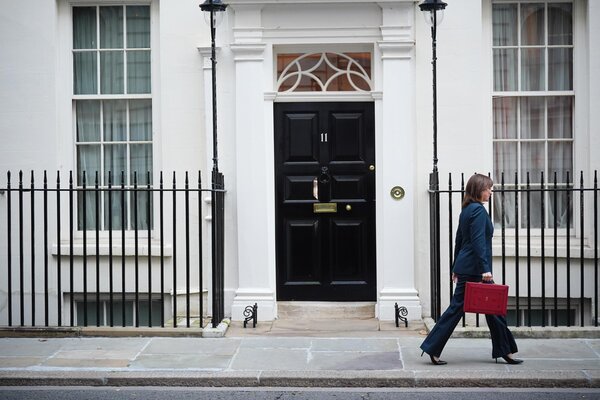Understanding It Inside Out
Inheritance tax might sound intimidating, but it's simply a tax on the estate (property, money, and possessions) of someone who has died. Currently set at 40%, it can take a substantial chunk out of what you leave behind for loved ones.
Understanding how inheritance tax works means you can plan ahead. With a bit of knowledge, you might save your family thousands of pounds and a lot of stress during an already difficult time.
The good news? There are various allowances and exemptions that can reduce or even eliminate the tax burden. Let’s break it down in plain English.
How do I actually calculate inheritance tax?
Start with the nil-rate band, which is currently £325,000 for the 2024–2025 tax year. This is your tax-free threshold. If your estate is worth less than this, there’s no inheritance tax to pay.
For estates worth more than £325,000, the portion above this threshold is typically taxed at 40%.
There’s also the residence nil-rate band, which can give you an additional £175,000 tax-free allowance when you leave your home to children or grandchildren.
Married couples and civil partners can combine their allowances. This means the surviving partner could have up to £1 million tax-free (£325,000 + £175,000 from each person).
Understanding Inheritance Tax
Inheritance tax is a levy on the value of an individual’s estate at the time of their death. This includes most property, possessions, and funds in bank accounts. Understanding inheritance tax is crucial because it can significantly impact the amount your loved ones receive.
The tax rules and exemptions can be complex, and without proper knowledge, you might end up paying more than necessary. Seeking expert advice can help you navigate these complexities and minimise the tax burden on your family.
Inheritance Tax Rules and Exemptions
Inheritance tax rules and exemptions play a significant role in determining how much tax is payable. For the 2024/25 tax year, the nil-rate band threshold is set at £325,000. Any assets above this threshold are typically taxed at 40%. However, there are several ways to reduce this tax liability.
Business property relief can lower the taxable value of business assets, while agricultural property relief applies to agricultural land and buildings. Additionally, charitable donations and gifts of land are exempt from inheritance tax, providing further opportunities to reduce the tax burden.

To calculate inheritance tax:
- Value all assets (property, money, possessions).
- Subtract any debts, funeral costs, and other allowable liabilities.
- Subtract the nil-rate band(s).
- Multiply the remaining amount by 40%.
Example:If your estate is worth £500,000:
- Deduct the £325,000 nil-rate band.
- £175,000 is taxable.
- 40% of £175,000 = £70,000 inheritance tax due.
You can use an inheritance tax calculator to estimate your potential inheritance tax liability based on your estate's value.
When do I need to pay inheritance tax?
Inheritance tax must be paid within six months of the person’s death. After that, HMRC charges interest. The executor of the will (or the administrator if there is no will) is responsible for paying it, typically using money from the estate.
Some of the tax usually needs to be paid before probate can be granted. This can cause cash flow issues if most of the estate is tied up in property.
For some assets, such as property or businesses, you may be able to pay in annual instalments over ten years. However, interest may still apply.
Which assets count towards inheritance tax?
Almost everything you own counts towards your estate for inheritance tax:
- Your home and any other properties
- Cash in bank accounts
- Investments, including ISAs and shares
- Valuables like jewellery, art, and cars
- Business assets
Some assets may qualify for tax relief, particularly business assets, agricultural property, and woodland.
Also, don’t forget about gifts made within seven years of death—these may be added back into the estate for inheritance tax purposes.
Life insurance payouts are typically included in your estate unless the policy was written in trust.
Understanding your potential inheritance tax liability can help you plan more effectively and take advantage of available reliefs and exemptions.
What about gifts and exemptions?
Each tax year, you can give away £3,000 without it counting towards inheritance tax—this is known as the annual exemption. You can also give small gifts of up to £250 per person per year, as long as that person hasn’t also received part of your £3,000 exemption.
Wedding gifts are also exempt up to certain limits:
- £5,000 to a child
- £2,500 to a grandchild or great-grandchild
- £1,000 to anyone else
Gifts between spouses or civil partners are entirely tax-free, regardless of value.
Anything you leave to a charity is also exempt. If you leave 10% or more of your net estate to charity, the inheritance tax rate on the rest of your estate may drop from 40% to 36%.
How can I reduce my inheritance tax bill?
- Start gifting early: If you survive for seven years after making a gift, it becomes completely tax-free.
- Put life insurance in trust: This keeps the payout outside of your estate.
- Use pensions wisely: Many pensions can be passed on outside your estate and aren’t subject to inheritance tax.
- Check for reliefs: Business Property Relief and Agricultural Relief can significantly reduce the taxable value of certain assets.
- Make regular gifts from income: If you can show they’re from surplus income and don’t affect your lifestyle, they may be exempt.
Is it worth getting professional advice?
If your estate is straightforward, you might be able to manage the calculations yourself using HMRC’s guidance. But if your affairs are more complex, speaking with a financial adviser or tax specialist could save your family time, money, and stress.
Tax rules change frequently, so what worked a few years ago might not be effective now. Professional advice can help you balance enjoying your wealth now with leaving a lasting legacy.
Final thoughts on inheritance tax planning
Inheritance tax planning isn’t just for the super-rich—anyone who owns a home in many parts of the UK might be affected.
The earlier you start, the more options you’ll have. Keep clear records of any gifts you make, and review your plans regularly, especially if your circumstances change.
What Affects How Much Inheritance Tax You Pay
Several factors influence how much inheritance tax you pay. The value of your estate, the nil-rate band threshold, and the availability of reliefs and exemptions all play a part. The residence nil-rate band can provide an additional tax-free allowance when you leave your home to direct descendants.
Other factors, such as funds in bank accounts, credit agreements, and your personal circumstances, can also affect the taxable value of your estate. Understanding these elements can help you better plan and potentially reduce the amount of inheritance tax payable.

Financial Planning and Inheritance Tax
Effective financial planning is essential to minimise your inheritance tax liability. Utilising the nil-rate band, claiming available reliefs and exemptions, and making strategic gifts can significantly reduce the tax burden.
Consulting with a qualified financial advisor can provide you with personalised advice and help you make informed decisions about your financial future. A comprehensive financial plan can help you navigate the complexities of inheritance tax and ensure you are taking full advantage of available tax reliefs.
Final Words: Getting Expert Advice
Navigating the complexities of inheritance tax can be overwhelming, but with expert advice, it doesn’t have to be. A qualified financial advisor can offer tailored recommendations to help reduce your inheritance tax liability and ensure that your estate is managed efficiently.
They can walk you through the detailed tax rules and exemptions, helping you make the most of available tax reliefs. Seeking expert advice not only provides peace of mind but also equips you with the knowledge to plan for the future confidently, ensuring your loved ones are well taken care of.
Pie is also here to simplify your tax planning and make it easier to track your inheritance tax situation. With its user-friendly tools and expert guidance, Pie.tax offers the support you need to stay on top of your finances.
Don't wait until it's too late—start planning today and ensure your legacy goes exactly where you want it to.









